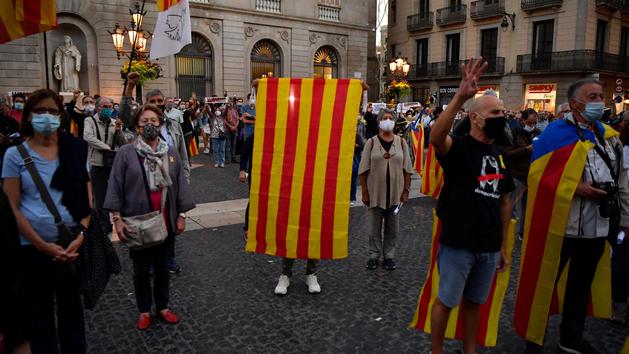The epidemic is increasing political and social risks all over the world, underlines Coface.
With Covid-19, there is a “tenfold” risk of civil unrest, explains the credit insurer, which has developed a Political Risk Index with which it closely measures the impact of the crisis.
This index assesses “
the degree of social frustration
”, based on various criteria such as the level of inequalities, the unemployment rate or the perception of corruption.
It measures the potential for discontent to express itself by taking into account the rate of access to higher education and the internet, or urbanization.
It also integrates the “fragility” of political systems and the degree of “populism” of political discourse.
It emerges that "
the grievances linked to the crisis could amplify the social movements inherited from the pre COVID-19 era, such as those in Hong Kong, France or Chile
", explains Julien Marcilly, chief economist at Coface.
Between containment measures deemed sometimes too severe and the impact of the recession on employment, income and inequalities, tensions will increase, he says.
Fertile ground for unrest
The study crossed the levels of social and political fragility of each country with the feelings of its inhabitants on the way in which the authorities dealt with the health crisis.
In developed countries, two nations, Spain and the United States appear "
particularly vulnerable to political risks in the coming months, especially as the risk of a second wave increases
".
In these two countries, less than 40% of the population is satisfied with the management of the crisis and anti-containment protests took place in the spring.
“
The fragility of the Sanchez government and the decisive elections in the United States provide fertile ground for social unrest.
The situation is similar in France
”, estimates the economist.
A vision confirmed by a poll published Thursday by the Berd and the German institute Ifo.
This indicates that while 76.3% of Germans and 78.3% of Dutch approve of their governments' response to the epidemic, less than 50% of French people and only 46% of Spaniards do the same.
Emerging countries are of course not immune to rising risks.
The risk of political and social fragility remains very high in Iran.
Turkey is the country where "the
measure of social risk has increased the most, even if its management of the epidemic has been rather good
", points out Julien Marcilly.
Upcoming conflicts
Latin America is fragile too.
Particularly in Brazil, Mexico, Peru and Colombia where the high political and social risk coexists with significant exposure to Covid-19.
Overall, the short-term economic outlook will lead to bankruptcies and job cuts "
likely to encourage an increase in social discontent
", Coface predicts.
The French insurer anticipates a drop in world GDP of 4.8% in 2020, followed by a rebound of 4.4% in 2021. According to him, the GDP of the euro zone will remain at the end of 2021 lower by 3.5 points than 2019 level while the US GDP will be 2 percentage points lower.
It will probably take at least three years to return to pre-crisis production levels.
As "
the size of the pie will have decreased over the whole of the period 2020 and 2021, we can expect more distribution conflicts
", summarizes Julien Marcilly.












/cloudfront-eu-central-1.images.arcpublishing.com/prisa/KMEYMJKESBAZBE4MRBAM4TGHIQ.jpg)


